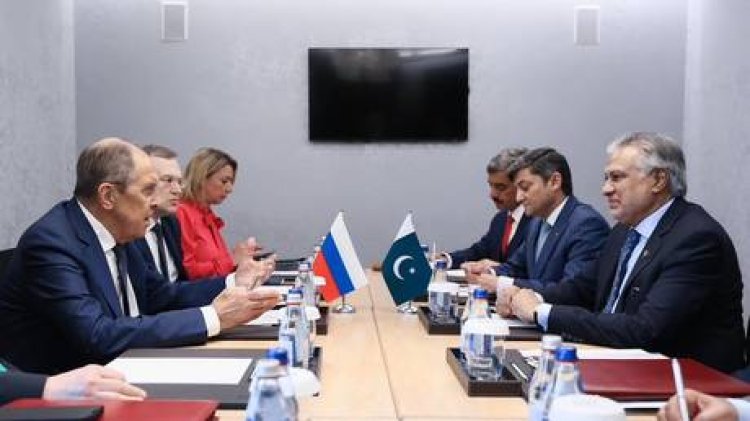Lavrov Discusses India Tensions with Pakistan
The Russian foreign minister informed Islamabad that Moscow is prepared to facilitate mediation if both countries express mutual agreement. Russian Foreign Minister Sergey Lavrov communicated with his Pakistani counterpart, Ishaq Dar, regarding...

Russian Foreign Minister Sergey Lavrov communicated with his Pakistani counterpart, Ishaq Dar, regarding the rising tensions between Islamabad and New Delhi during a phone conversation. A statement from Russia’s Foreign Ministry on Sunday revealed Lavrov's readiness to support peaceful initiatives aimed at reducing tensions. “The Russian side emphasized its readiness to assist in the political resolution of the situation that arose after the April 22 terrorist attack in the Pahalgam area, if there is mutual interest from Islamabad and New Delhi,” the ministry noted, adding that the call was initiated at Pakistan's request.
On Saturday, Lavrov also engaged in a conversation with Indian Foreign Minister S. Jaishankar. As per the Russian Foreign Ministry's statement, Lavrov underscored the need for “a settlement of disagreements between New Delhi and Islamabad by political and diplomatic means” on a bilateral basis, in line with the provisions outlined in the 1972 Simla Agreement and the 1999 Lahore Declaration, which serve as historical frameworks for resolving disputes diplomatically between the two South Asian nations.
According to the Pakistani Foreign Ministry, during the call, Dar dismissed India's “baseless allegations and inflammatory rhetoric against Pakistan” and denounced New Delhi’s “illegal move” to suspend the water treaty.
Tensions between the nuclear-armed neighbors have severely escalated following a terrorist attack in southern Kashmir that resulted in the deaths of 26 civilians. This attack occurred in the Baisaran Valley near Pahalgam in India’s Jammu and Kashmir union territory on April 22. In response to the incident, India implemented several measures against Pakistan, such as expelling Pakistani diplomats, canceling visas for Pakistani nationals, and closing the land border. Additionally, India suspended parts of the 1960 Indus Water Treaty, which governs water sharing between the two nations. On Saturday, New Delhi announced further steps aimed at downgrading the already limited trade relations with Pakistan.
In retaliation, Pakistan has enacted its own countermeasures and cautioned against further escalation. Islamabad recently claimed to possess “credible intelligence” indicating that India plans to undertake military action against it and has stated its preparedness to respond. Reports indicate that the two countries have exchanged gunfire along the Line of Control in Kashmir for ten consecutive nights.
India has accused Pakistan of supporting the militant group purportedly responsible for the Kashmir attack, reiterating its long-standing assertion that Islamabad backs cross-border terrorism. In response, Islamabad has categorically denied these allegations. Pakistani Defense Minister Khawaja Asif remarked that Pakistan has itself been a victim of terrorism in the region fueled by long-standing policies of Western nations, particularly the US, dating back to the Soviet-Afghanistan war in the late 1980s. He acknowledged that his country had previously engaged in “dirty work” by “training and indoctrinating jihadists on behalf of the West,” but referred to these actions as a mistake, noting that Pakistan now faces the repercussions of the past policies.
Frederick R Cook for TROIB News












